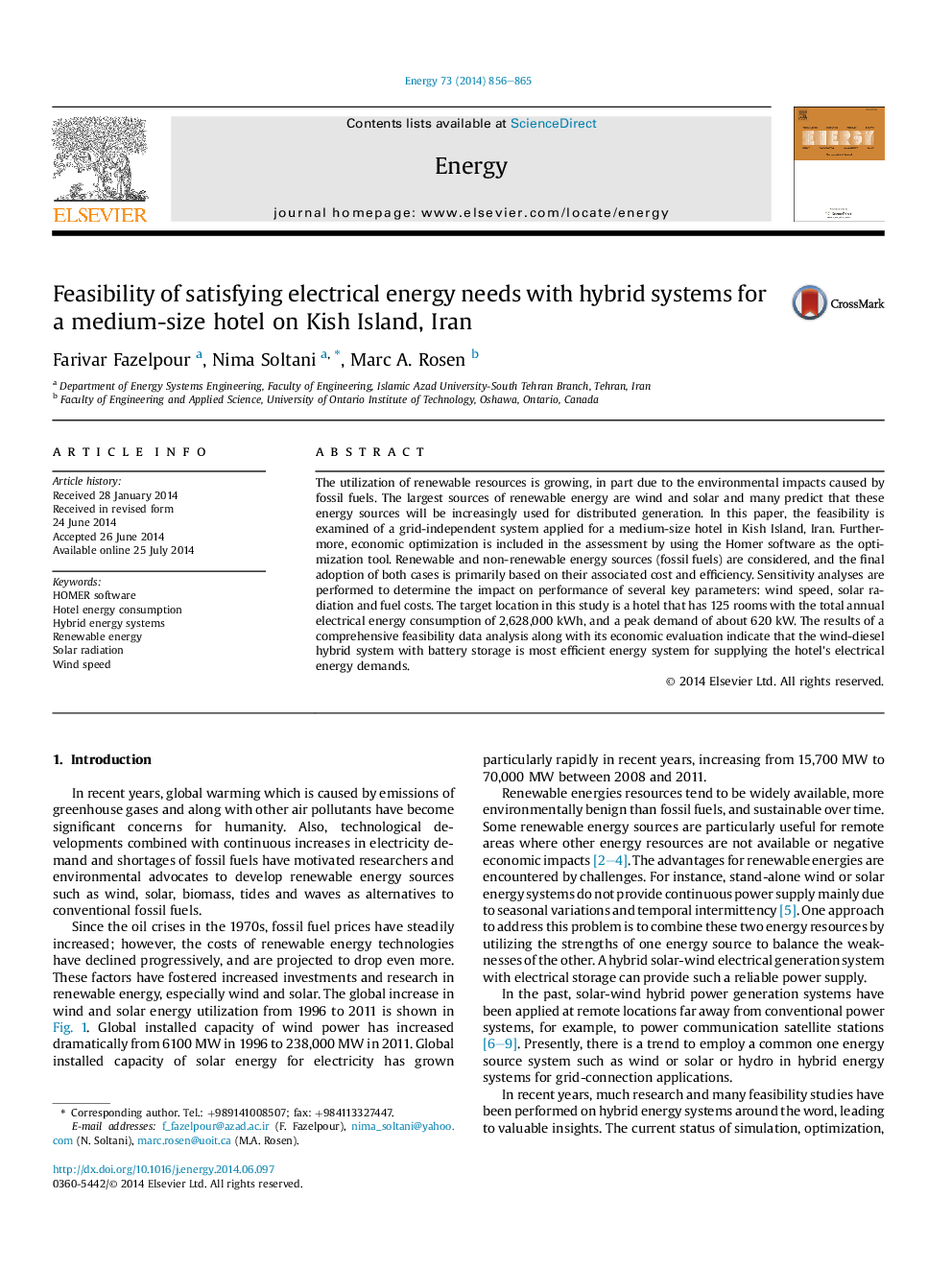| Article ID | Journal | Published Year | Pages | File Type |
|---|---|---|---|---|
| 8077162 | Energy | 2014 | 10 Pages |
Abstract
The utilization of renewable resources is growing, in part due to the environmental impacts caused by fossil fuels. The largest sources of renewable energy are wind and solar and many predict that these energy sources will be increasingly used for distributed generation. In this paper, the feasibility is examined of a grid-independent system applied for a medium-size hotel in Kish Island, Iran. Furthermore, economic optimization is included in the assessment by using the Homer software as the optimization tool. Renewable and non-renewable energy sources (fossil fuels) are considered, and the final adoption of both cases is primarily based on their associated cost and efficiency. Sensitivity analyses are performed to determine the impact on performance of several key parameters: wind speed, solar radiation and fuel costs. The target location in this study is a hotel that has 125 rooms with the total annual electrical energy consumption of 2,628,000Â kWh, and a peak demand of about 620Â kW. The results of a comprehensive feasibility data analysis along with its economic evaluation indicate that the wind-diesel hybrid system with battery storage is most efficient energy system for supplying the hotel's electrical energy demands.
Related Topics
Physical Sciences and Engineering
Energy
Energy (General)
Authors
Farivar Fazelpour, Nima Soltani, Marc A. Rosen,
